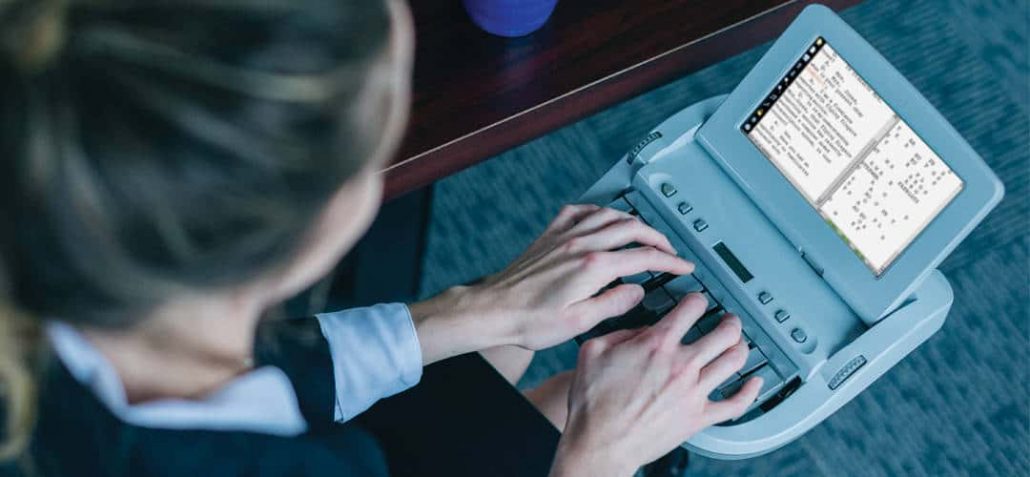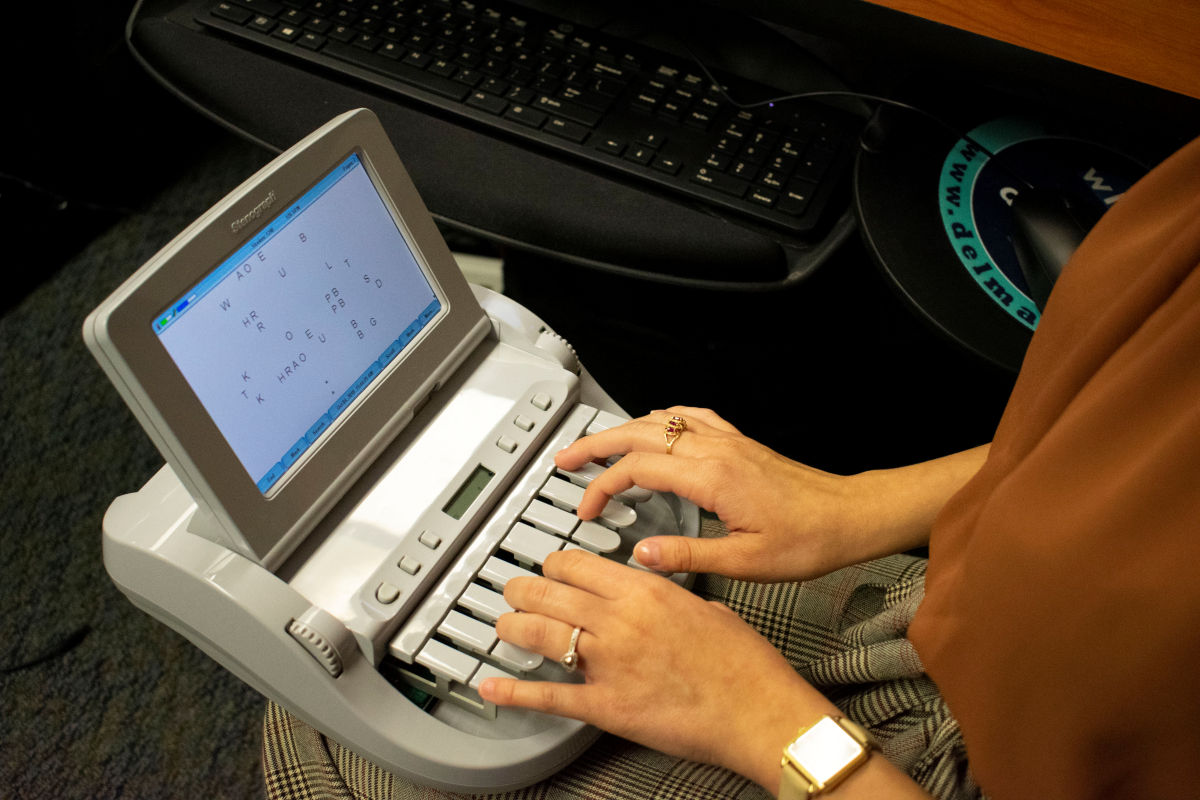Understanding the Relevance of Court Coverage in Legal Provider and Process
Court reporting plays a crucial duty in the lawful landscape, working as the backbone of exact documents in numerous lawful process. By providing verbatim records, court press reporters make certain that every testimony and disagreement is thoroughly recorded, therefore safeguarding the integrity of the judicial procedure. Beyond simple documentation, their job sustains fairness and transparency, which are fundamental concepts of justice. Nonetheless, the development of innovation and the ethical effects bordering this occupation raise crucial questions concerning its future. What might these changes indicate for the legal system and its stakeholders?
Duty of Court Reporters

In addition to transcription, court press reporters are usually entrusted with handling and keeping the flow of procedures. They must be skilled in legal terms and have a comprehensive understanding of court procedures to guarantee that the document shows the context and nuances of the dialogue. Their job may also prolong beyond typical courts, incorporating administrative hearings, mediations, and other legal settings where paperwork is crucial.
In addition, stenotype reporter might supply real-time reporting, enabling instant accessibility to transcripts throughout procedures, which can be critical for the efficient management of justice. By guaranteeing that a precise document is maintained, court reporters copyright the stability of the legal procedure, facilitating appeals and offering as an essential resource for lawyers in their pursuit of justice.
Relevance of Precision
The function of accuracy prolongs beyond simple transcription; it encompasses the ability to record the nuances of speech, consisting of tone, emphasis, and non-verbal cues, which can be important in comprehending the context of statements made. An exact record ensures that all parties included-- lawyers, juries, and judges-- have accessibility to the exact same information, fostering fairness and transparency in the judicial process.
Moreover, precise transcripts are important for the appellate procedure, where higher courts count on them to examine reduced court decisions. Errors can jeopardize the outcome of an appeal, potentially affecting an event's flexibilities and legal rights. Therefore, the dedication to accuracy in court reporting is not just an expert obligation but a cornerstone of justice that maintains the policy of regulation.
Sorts Of Lawful Proceedings
Treatment a large array of legal contexts, stenotype reporter are essential in different kinds of legal process, each requiring distinct approaches and skills. Amongst one of the most common kinds are civil lawsuits, criminal trials, and administrative hearings. In civil lawsuits, court press reporters capture depositions, motions, and statements, ensuring that every detail is documented precisely for possible charms or settlements.
In criminal trials, the function of stenotype reporter becomes much more crucial, as they transcribe all facets of the process, including court options, witness testimonies, and sentencing stages - Court Reporting. The accuracy and immediacy of these documents are critical, given the potential consequences for offenders and the stability of the judicial system
Management hearings, typically performed by governmental companies, also depend on court press reporters to maintain main records of proceedings. These hearings can look at this web-site entail conflicts regarding regulative conformity, employment problems, or expert licensing, requiring precise paperwork.
Furthermore, specialized process such as mediation and mediation call for court press reporters to record the subtleties of negotiations and contracts. Each type of legal action presents distinct challenges, underscoring the importance of seasoned stenotype reporter in supporting the honesty of the legal process.
Innovation in Court Coverage
Developments in technology have actually changed the field of court coverage, improving both efficiency and accuracy in the transcription process. Typical methods of hands-on note-taking have actually been supplemented and, in some situations, changed by sophisticated digital devices that improve operations and enhance precision (Court Reporting). Court reporters currently use innovative steno machines geared up with real-time transcription abilities, enabling instant accessibility to a verbatim account of procedures
Moreover, the integration of speech recognition software application has further transformed the coverage landscape. This innovation makes it possible for the automated transcription of talked words, significantly decreasing the time needed for creating main records. In addition, cloud-based platforms help with very easy storage space and retrieval of records, ensuring that legal professionals can access vital papers from anywhere, at any type of time.
Video conferencing tools have also emerged as crucial components in remote depositions and hearings, aiding stenotype reporter capture process in real-time, no matter of area. The mix of these technological advancements not only boosts the precision of lawful documents but also sustains a much more flexible and effective legal process. As the area proceeds to develop, welcoming these improvements will certainly be vital in meeting the growing demands of the legal market.
Ethical Considerations in Reporting
The assimilation of technology in court reporting brings with it a set of honest considerations that professionals need to navigate thoroughly. As court reporters progressively employ electronic tools, concerns bordering honesty, accuracy, and confidentiality pertain to the leading edge. Protecting delicate info is vital; reporters should make sure that any kind of digital records are safely saved and shared only with licensed people.
Additionally, the precision of transcriptions is critical. Utilizing software application for real-time coverage does not discharge court press reporters from the responsibility of making sure that the end product is specific. Moral commitments determine that any kind of mistakes have to be without delay corrected and communicated to appropriate parties.

Last but not least, compliance with lawful standards and industry regulations is necessary. Court reporters must remain educated regarding progressing ethical guidelines to support the trust fund placed in them by the lawful system. By attending to these ethical considerations, stenotype reporter can proceed to supply vital services in legal More hints process while maintaining public confidence.
Verdict
In conclusion, court reporting plays an important role in the legal system by making sure precise and reliable documents of judicial proceedings. The meticulous job of stenotype reporter supports the honesty of the legal procedure and supports the rights of people included. The integration of technology improves effectiveness while preserving honest standards. Eventually, the value of court reporting can not be overemphasized, as it works as an essential structure for fairness, openness, and the effective administration of justice.
Court coverage plays an essential function in the legal landscape, offering as the foundation of exact documentation in different legal procedures.Court press reporters constantly play a vital function in the judicial process by creating accurate, verbatim records of lawful proceedings.In addition, exact transcripts are essential for the appellate procedure, where higher courts depend on them to review lower court choices.Treatment a vast selection of legal contexts, court reporters are necessary in various types of legal proceedings, each needing distinct techniques and skills. By addressing these ethical considerations, court reporters can proceed to supply indispensable solutions in lawful process while keeping public self-confidence.